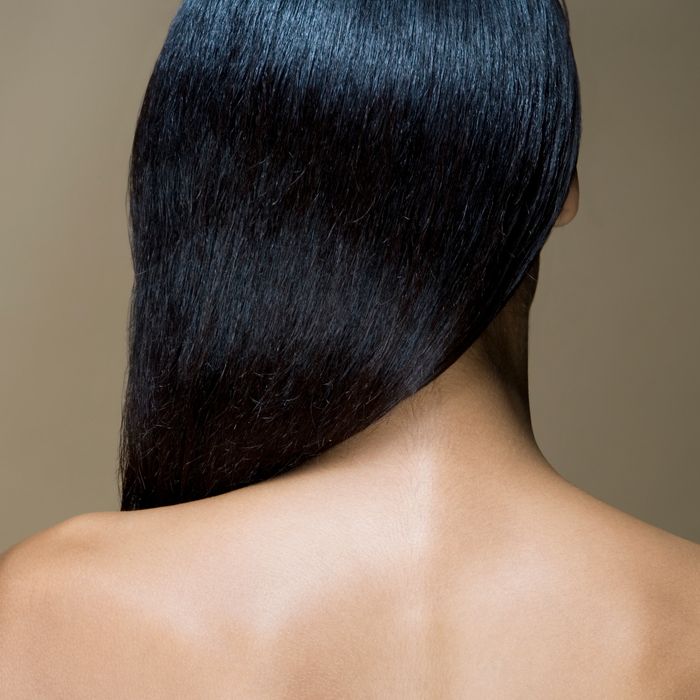What to Know About Hair Straighteners’ Link to Cancer
October 18, 2022
Photo: Lena Clara/Getty Images/fStop
As someone who has recently returned to using a relaxer after being natural for six years, I value the convenience that having relaxed hair affords me, and a lot of other Black women do too. It means that I can more easily move through white spaces without stares and questions and that I don’t have to worry about my hair in the morning.
Today, a study by the National Institute of Environmental Health Sciences — conducted over a decade and including over 30,000 women from the ages of 35 to 74 — concluded that women who use hair relaxers could have a higher risk of uterine cancer than those who don’t, reported the New York Times.
Uterine cancer has one of the largest racial disparities reported of any cancer, with studies showing Black women dying at twice the rate that white women do from the disease. Uterine cancers have risen from 39,000 cases 15 years ago to 65,950 cases this year.
This is particularly upsetting news for Black women, who made up more than 60 percent of the study and more frequently use hair straighteners — especially perms and relaxers — because of societal beauty pressures as well as acts of discrimination in schools and places of work. It was only two years ago that the Crown Act was passed, which prohibits discrimination on the basis of natural hair as a form of race or national-origin discrimination. Natural hair has been banned from some schools, as was the case at Butler Traditional High School in Louisville, Kentucky, in 2016, when its dress code explicitly prohibited natural hair. Celebrities like Lupita Nyong’o and Zendaya have opened up about the struggles that come with having natural hair in Hollywood. And before the Crown Act, it was legal for employers and educational facilities to deny prospective employees or students based on hairstyles or textures.
Alexandra White, head of the Environment and Cancer Epidemiology Group of the National Institute of Environmental Health Sciences and the study’s lead author, acknowledged in a statement that there is a lot of pressure on Black women to have straight hair. “It’s not an easy decision to not do this,” she said. She’s right.
This news comes during a relaxer revival, thanks mostly to TikTok, where women have become more vocal about their decision to return to having a perm. The natural-hair movement, which gained popularity a few years ago with women like Solange, seems all but forgotten.
Beauty products, especially those used by Black women, are largely unregulated by the FDA. Previous studies have tied hair products like straighteners and dye chemicals to higher risks of ovarian and breast cancers. And sure, every woman’s hair journey is different, but it shouldn’t come at a risk to our health.